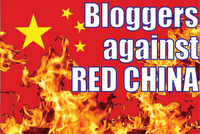WSJ.com - In Trade Talks, Western Farmers Hold Their Ground: "In Trade Talks,
Western Farmers
Hold Their Ground"
HONG KONG -- Here's a simplified scorecard for the current impasse in global trade talks: United Parcel Service Inc. is losing; Swiss parsley farmers are ahead.
UPS and an alliance of express-mail carriers have high hopes for the current talks, known as the Doha Round. They want to streamline customs procedures and other delivery regulations around the world, and block countries like China from imposing new restrictions. The delivery companies are part of a broader coalition of multinationals -- from banks to auto makers -- hoping to further open markets, especially those in developing countries, when trade ministers from the 149-member World Trade Organization meet here starting today.
[nowides] WTO TRADE TALKS
[icon]
Read the latest news from this week's trade negotiations in Hong Kong. Plus, take a look at what's on tap1 for the trade talks.
• Stakes Rise for Chinese Farmers Who Quit Grains for Produce2
• Korean Farmers Protest Threat to Their Livelihood3
• The Bar Gets Higher for Vietnam's Entry Into WTO4
• Activists Seek to Shape, Not Disrupt, Meeting5
But that won't happen unless the U.S. and European Union agree, in exchange, to open their markets more dramatically to agriculture imports.
That bargain is running into resistance from the likes of Swiss parsley growers, who enjoy a 700% tariff designed to ensure not a foreign sprig gets sold there. Cut a deal, Swiss activists contend, and cheaper agriculture products -- not just parsley, but poultry, milk and cheese -- would flood in, wiping out the picturesque patchwork of farms dotting the foothills of the Alps. "We could never compete," says Heidi Bravo of the Swiss Farmers Union. U.S. agricultural interests, from cotton growers to sugar-beet farmers, make similar arguments.
So far, Western farmers are prevailing over the corporate behemoths, even though agriculture accounts for a tiny fraction of economic output in developed economies. The pain for agriculture from any deal would be far more concentrated than the gain for service and manufacturing companies. Farmers, with their very livelihoods at stake, have been far more aggressive and effective in moving to thwart the trade round than the multinationals have been lobbying to advance it.
[Unequal Parts]
That's a big reason why expectations are so low for this week's talks, scheduled to end Sunday. Trade ministers had originally hoped the Hong Kong meeting would produce the basic framework of an agreement, leaving negotiators a bit more than a year to hammer out precise language before the round's mid-2007 deadline. Instead, diplomats are likely to push into next year the tough decisions on the main contours of the round, raising serious doubts about whether the negotiations can ever be completed.
Doha is the ninth set of multilateral free-trade talks since American and European leaders began the process shortly after World War II. It's the first, however, to explicitly focus on the interests of developing countries.
The notion dates back to the riot-torn talks in Seattle in 1999, when poor nations complained that the WTO was a club for rich countries. The developing nations succeeded in blocking the launch of a new round until their economic concerns -- particularly on opening of farm markets -- were given greater weight. Supporters argue that lowering barriers to agricultural imports from developing nations would be one of the best ways to pull them out of poverty. The Doha Round began in Doha, Qatar, in December 2001, shortly after the Sept. 11 attacks, with Western leaders vowing to show how a divided world could become more unified through freer markets.
Complex Relationship
Developing nations now find themselves in a complex relationship with the big multinationals. Both groups, for different reasons, want to open up Western farm markets. But local companies in developing nations could also be hurt by the multinationals' push to knock down trade barriers.
The new focus on helping the poorer nations is more than charity. Over a half-century of trade liberalization, the U.S. and Europe have gone a long way toward knocking down barriers and harmonizing business rules between their own markets. For big Western corporations, the most significant opportunities in future trade rounds lie in the rest of the world. The U.S. and Europe impose tariffs averaging about 4% of the price of imported industrial goods, compared with an average of 27.5% imposed by developing countries, according to EU estimates.
So joining the trade ministers in Hong Kong this week will be Joseph Allen, a top executive with Caterpillar Inc., the Peoria, Ill., maker of heavy-duty work vehicles. Mr. Allen's group salvages old engine components, such as water pumps and transmissions. It cleans and retools them, gives them a new warranty and sells them for as little as 30% of the price of newly made parts. This "remanufactured goods" business grew 15% for Caterpillar in 2004, and it expects similar gains this year.
The products are aimed at countries that can't afford Caterpillar's newest equipment. But many countries block such goods, to protect local industry or to ensure their markets don't become dumping grounds for American junk. Brazil requires special import licenses for remanufactured goods, which adds costs and extends delivery time. Columbia, Peru and Ecuador ban the products outright.
After talks between the U.S. and Chile eliminated Santiago's 50% tariff on recycled goods in 2003, Caterpillar's sales to the country jumped 75% the next year.
Mr. Allen's efforts to get the WTO to set new rules for remanufactured goods have been joined by makers of medical devices, cellphones and auto parts.
BMW AG, which has loaned WTO organizers 250 of its top-of-the line 7-series cars for the Hong Kong event, hopes to make some headway cutting tariff and nontariff barriers in developing markets. Last year, the German car maker sold only 122 cars in India, a market of more than one billion people. That's partly because of fees and tariffs that more than double the price of imported cars. And India won't allow imports of smaller cars, keeping most versions of BMW's top-selling 3-series off the market.
[Entrance Fee]
Without a Doha breakthrough, BMW's unwieldy solution is to open in 2007 what it calls a "complete knock down" factory in India. Taking advantage of Indian tariffs of only 15% on car parts, BMW plans to ship unassembled versions of its 3 and 5 series sedans to the country. There, workers will put them together so they can be sold as whole cars without paying the 100% duty.
Ford Motor Co. wants Doha to force South Korea to curb auto taxes based on engine size, which, the U.S. government says, are structured to hit 93% of American-made passenger vehicles. The levies can add as much as $5,000 to the cost of an American car. That's one reason imports now make up just 2% of the South Korean car market. "There's a lot of pent-up ambition," says Stephen E. Biegun, vice president for international governmental affairs for Ford.
For the service multinationals, the goals in Doha are more subtle than knocking down tariffs and duties. They're worried about conflicting regulations that add red tape to their cross-border transactions, and shadowy local rules that also inhibit trade.
Global Express, the delivery industry's trade association, opened its annual meeting in Hong Kong over the weekend. The group is pushing for the Doha Round to approve an agreement that would standardize "customs codes," the numerical identifications assigned to imported goods. Some of the 200-plus countries where UPS operates use different codes for the same product, sometimes hanging a package up in port for days at a time as officials determine what it is and what tariffs might apply.
UPS also wants new WTO guidelines to prevent countries from imposing fresh curbs on competition before the U.S. firm can cement a large presence. China is currently UPS's fastest growing market. Shipments in the third quarter were up 35% from a year ago. But new postal legislation, expected to be finalized next year in Beijing, threatens to saddle international express delivery companies with new limits and taxes.
David Abney, president of UPS's international operations, says he fears the national postal service will be put in charge of regulating the entire industry. "We don't see how they can compete with us and be in charge of regulating the industry," he says.
Many big service providers see Doha as a chance to stitch together a consistent global market allowing for more aggressive expansion. The National Retail Federation, joined by representatives of Wal-Mart Stores Inc. and J.C. Penny Co., will be in town this week. High on the retailers' agenda is the possible admission of Russia into the WTO. They hope to ensure Moscow moves to ease local restrictions on the size and location of foreign-owned stores, among other things.
The price the U.S. and EU need to pay to get those concessions is a big cut in protections and subsidies for their farmers.
In principle, that would seem an achievable deal. In the U.S., agriculture accounts for less than 1% of economic activity, according to published estimates from the Central Intelligence Agency. In the EU, the figure is just 2.2%. Manufacturing and services make up most of the rest.
A big European business association recently issued a statement saying that it "cannot accept that agricultural protectionism holds the round hostage."
Yet that's just what's happening. American cotton growers worry the Doha Round could leave them more vulnerable to imports from African countries like Burkina Faso and Benin. Steve Williams, a sugar-beet farmer from Fisher, Minn., is traveling to Hong Kong to try to fend off concessions that could leave his 700 acres in the Red River Valley vulnerable to Thai and Colombian rivals.
Shifting Politics
Farmers' lobbies have been particularly skilled at taking advantage of shifting politics in Europe. Popular support for strengthening ties across Europe has been weakening. But the desire to protect local farmers has remained strong. It dates back to the immediate postwar period when agricultural self-reliance emerged as a matter of national pride and security. More recently, European farmers have made convincing arguments that they help maintain rural infrastructure and preserve the environment and recreational opportunities.
Norwegian dairy farmer Kari Redse Haaskjold cares for 20 milk cows on a farm in the middle of the country, where rain and snow force her to keep the livestock indoors for at least half the year. The cows are kept in stalls for now, but Oslo's new animal-welfare law will force her to provide her cattle with more covered space to roam. That is only economical, she says, because Norway imposes 400% tariffs on dairy products. Government support makes up about a third of her total income. A Doha agreement limiting those benefits and protections would mean "I wouldn't be able to continue my farm and neither would my children," she says.
Even in the best of times, such stories are bound to win more sympathy than the pleadings of multinationals. And these aren't the best of times for free-trade advocates. Public anxiety about globalization has grown sharply, spurred by labor-market dislocations, especially in manufacturing centers, where trade liberalization may seem as likely to spur outsourcing as export-creating jobs.
The corporate backers of new trade agreements have had to fight ever harder in recent years just to win the small deals. In the U.S., it wasn't until October that a core group of multinational concerns, including Caterpillar, Pfizer Inc., Goldman Sachs & Co. and Time Warner Inc. organized the American Business Coalition for Doha. One reason: the U.S. business lobby was focused through much of the year on salvaging a modest U.S. trade deal with six Central American nations, which passed Congress over the summer with just two votes to spare.
Monday, December 12, 2005
WSJ.com - In Trade Talks, Western Farmers Hold Their Ground
Posted by Unknown at 11:58 PM
Subscribe to:
Post Comments (Atom)
























0 comments:
Post a Comment